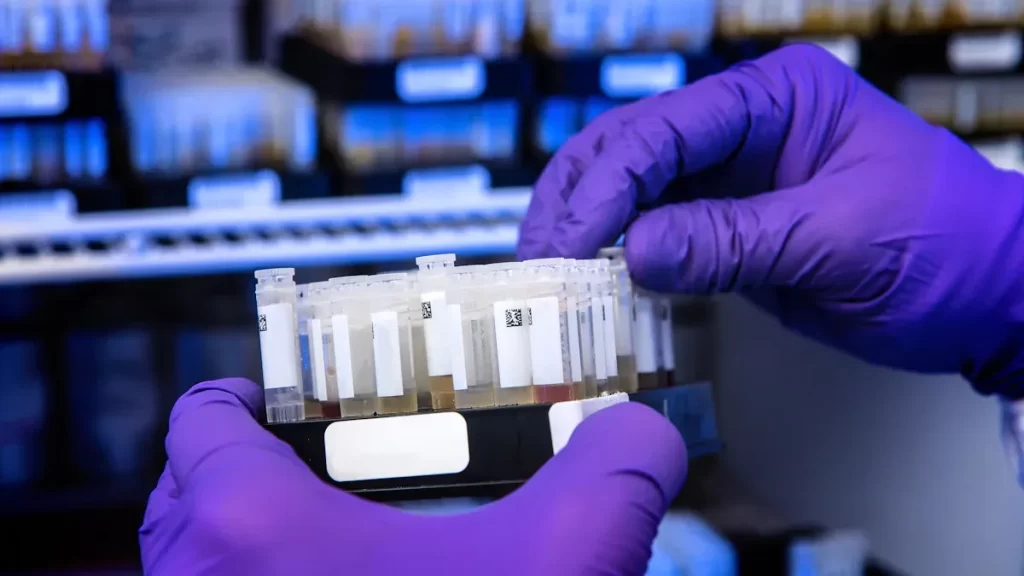News & Events
Comprehensive Overview of SCL-70 Antibody Significance
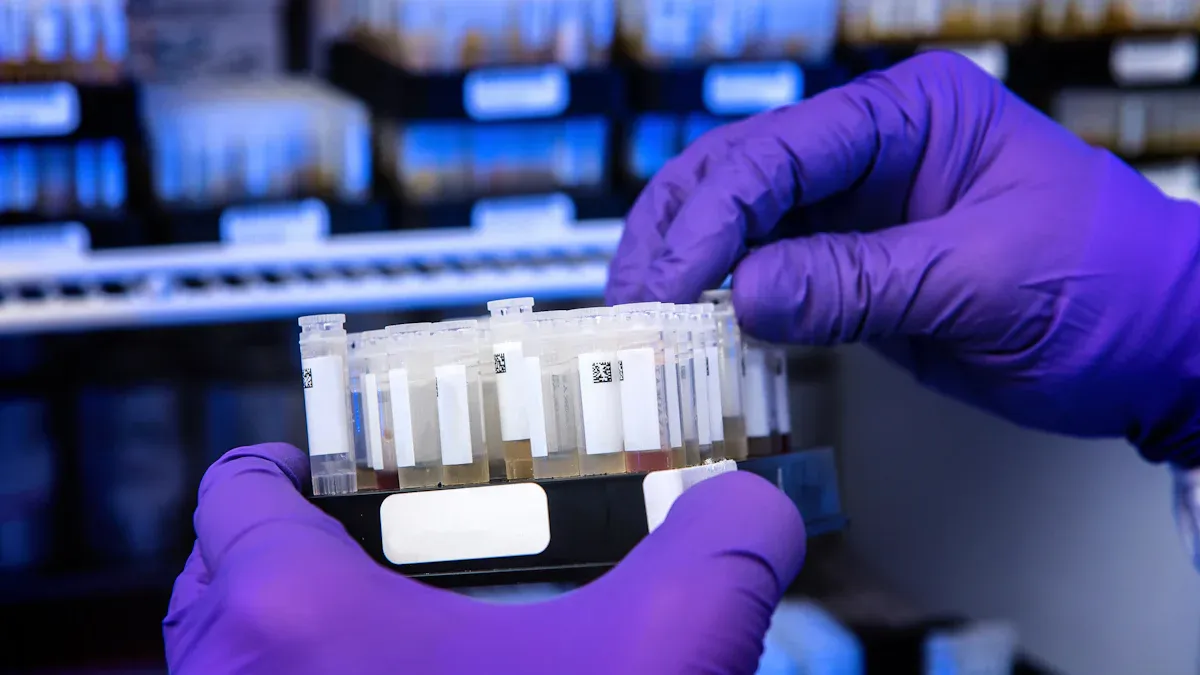
You may wonder what the scl 70 antibody is and why it matters. This antibody targets a protein in your cells and plays a major role in systemic sclerosis. Doctors often use it to help diagnose the disease and manage your care. You can see its importance in the following ways:
- About 77% of people with diffuse scleroderma test positive for this antibody, while 44% with acrosclerosis do.
- Patients with scl 70 antibody often have more severe and rapidly progressing disease.
- Higher levels may signal greater organ involvement and a poorer outlook.
Understanding this antibody helps you and your healthcare team make better decisions about your treatment and future.
Key Takeaways
- The SCL-70 antibody is crucial for diagnosing systemic sclerosis, especially the diffuse type, which is linked to more severe disease.
- Testing for SCL-70 antibodies is recommended if you have symptoms like skin thickening or unexplained lung issues, helping doctors assess your risk for complications.
- A positive SCL-70 antibody test often indicates a higher risk of lung and kidney problems, making regular health checks essential for early detection.
- Understanding your SCL-70 test results empowers you to discuss treatment options with your doctor, ensuring a tailored approach to your care.
- Stay informed about SCL-70 antibodies and their implications, as ongoing education can enhance your health management and treatment decisions.
What Is SCL 70 Antibody
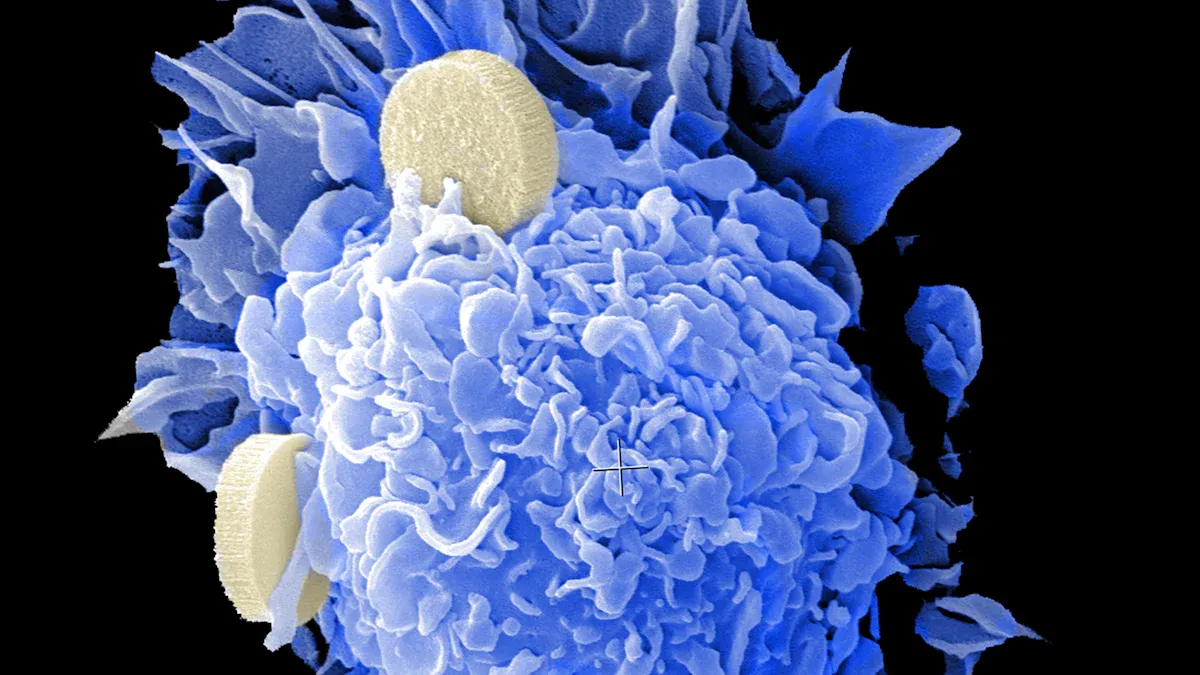
Biological Role
You may wonder what the scl 70 antibody does in your body. This antibody targets a protein called DNA topoisomerase I. This protein helps your cells manage and repair their DNA. The main form of this protein in your body weighs about 100 kDa. When your immune system makes the scl 70 antibody, it attacks this important protein. Scientists call these antibodies “anti-topoisomerase I” because they react with the topoisomerase I protein. This reaction can cause problems in your tissues and organs.
DNA topoisomerase I is vital for cell health. When the scl 70 antibody targets it, your body may start to damage its own cells. This process is a key part of some autoimmune diseases.
You can see how the scl 70 antibody interacts with DNA topoisomerase I in the table below:
| Evidence Description | Details |
|---|---|
| Interaction of SCL-70 with TOP1 | The scl 70 antibody recognizes fragments of the TOP1 protein. |
| Autoantibody Recognition | It reacts with parts of the TOP1 amino acid sequence. |
| Clinical Relevance | This reaction is important in autoimmune responses in systemic sclerosis. |
Link to Autoimmune Diseases
The scl 70 antibody is most often linked to systemic sclerosis. This disease causes your skin and organs to harden and scar. You are more likely to have this antibody if you have the diffuse form of systemic sclerosis. About 40% of people with diffuse cutaneous systemic sclerosis have the scl 70 antibody. If you have limited cutaneous systemic sclerosis, the chance drops to less than 10%. People with systemic sclerosis and lung problems show this antibody in about 45% of cases.
- The scl 70 antibody is rare in other diseases.
- Its presence often means a higher risk of lung disease and a more severe illness.
- Doctors use this antibody to help diagnose and predict the course of systemic sclerosis.
SCL 70 Antibody Testing
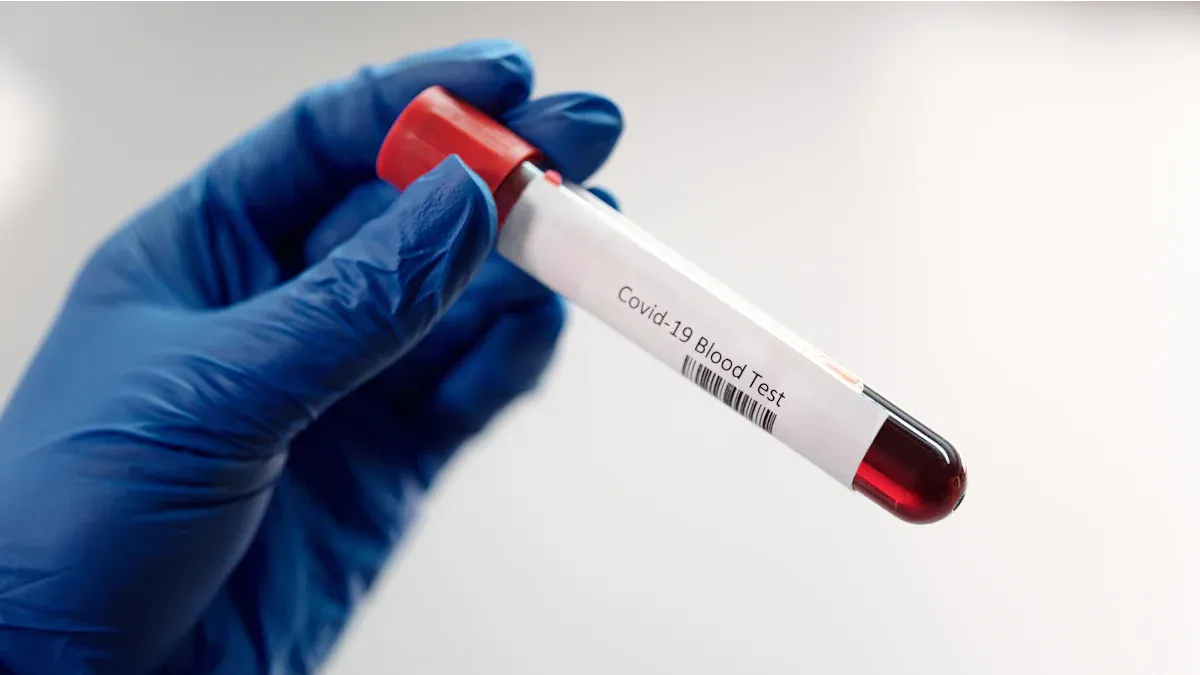
Who Needs Testing
Doctors may suggest scl 70 antibody testing if you show signs of systemic sclerosis. You might need this test if you have thickened skin, Raynaud’s phenomenon, or unexplained lung problems. The test helps doctors find out if you have the diffuse form of systemic sclerosis or another type. You may also need testing if you have a positive antinuclear antibody (ANA) test or if your doctor wants to check for other autoimmune diseases.
Here are some common reasons for testing:
- You have symptoms like skin tightening or finger swelling.
- You have lung or heart problems that doctors cannot explain.
- Your ANA test is positive.
- Your doctor wants to know which type of systemic sclerosis you have.
Doctors often use this test to help tell the difference between diffuse and limited forms of the disease. The chart below shows which patient groups are most likely to get tested:
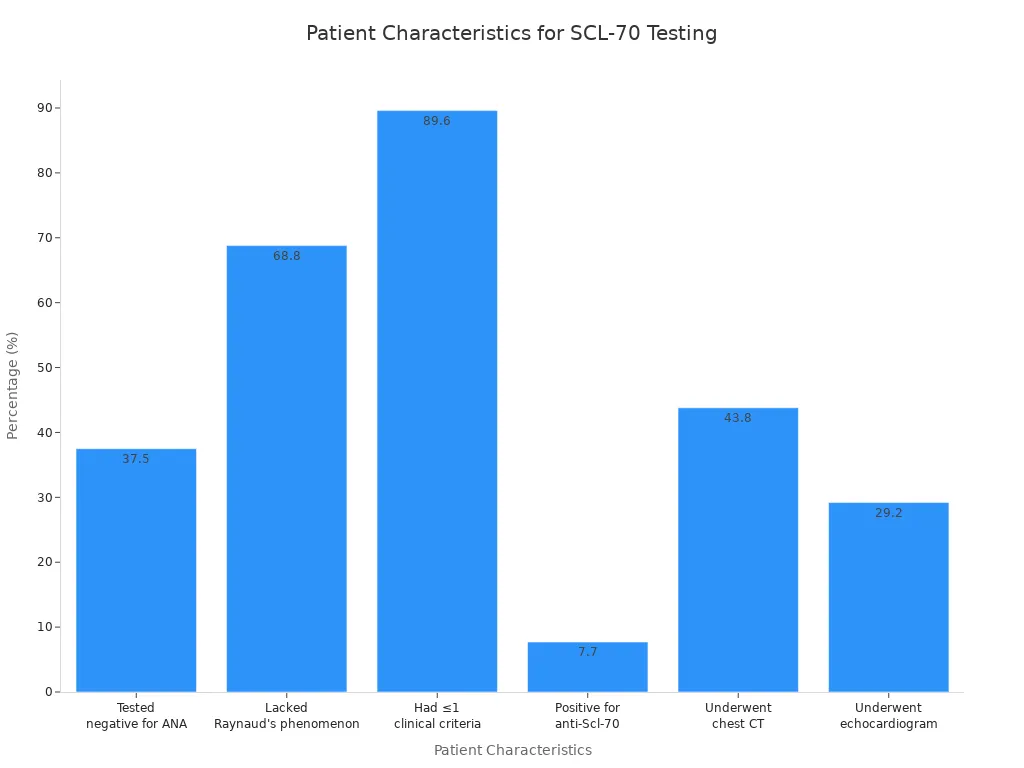
Test Procedure
You will give a blood sample for the scl 70 antibody test. The lab uses special methods to look for the antibody in your blood. Some common methods include:
- Immunodiffusion (ID)
- Line immunoblot
- Enzyme-linked immunosorbent assay (ELISA)
- Multiplex bead immunoassay
- Chemiluminescence immunoassay
- Fluorescence enzyme immunoassay
Doctors often start with an ANA test using indirect immunofluorescence. If this test is positive, they may order more tests for scl 70 antibody and other related antibodies.
| Method | Description |
|---|---|
| Multiplex Flow Immunoassay | Uses special beads and lasers to find antibodies in your blood. |
| Solid-Phase Immunoassays | Includes ELISA and other tests that detect antibodies on a solid surface. |
What to Expect
You can expect the blood draw to take only a few minutes. Most labs return results in 1 to 3 days. The table below shows how long different labs take:
| Source | Turnaround Time |
|---|---|
| Wardelab | 1 – 3 days |
| Cleveland Clinic Laboratories | 1 – 3 days |
| Avantic Medical Lab | 1 – 3 days |
| Ultalab Tests | 2 – 3 business days |
You may feel a small pinch during the blood draw. After the test, you can go back to your normal activities. Your doctor will explain what the results mean for your health and next steps.
Interpreting Test Results
Positive SCL 70 Antibody
A positive scl 70 antibody test can give you important information about your health. This result often points to systemic sclerosis, especially the diffuse cutaneous type. Doctors use this test to help confirm a diagnosis when you have symptoms like skin thickening or lung problems. You should know that not every positive result means you have the disease. Sometimes, the test can show a low positive level even if you do not have systemic sclerosis.
- A positive test links to systemic sclerosis, mainly the diffuse cutaneous type.
- You see this antibody in about 15-30% of diffuse cutaneous systemic scleroderma cases.
- Low positive levels may be false positives.
If your test comes back positive, your doctor will look at your symptoms and other test results before making a diagnosis. You may need more tests to check for organ involvement or other autoimmune diseases.
Note: A positive result does not always mean you have systemic sclerosis. Your doctor will use your full medical picture to decide what the result means for you.
Negative SCL 70 Antibody
A negative scl 70 antibody test does not rule out systemic sclerosis. Many people with this disease test negative for the antibody. You may still have symptoms or other signs of the illness even if your test is negative. Doctors use other tests and your clinical history to make a diagnosis.
Here is a table that shows how often patients with systemic sclerosis test negative for scl 70 antibodies:
| Finding | Percentage |
|---|---|
| Patients testing negative for SCL-70 antibodies | 40% |
You can see that a large number of patients with systemic sclerosis do not have this antibody. Your doctor may look for other antibodies or signs to help guide your care.
Test Limitations
You should understand the limits of scl 70 antibody testing. The test can help doctors, but it is not perfect. Sometimes, the test gives a false positive result. This means the test says you have the antibody when you do not have the disease. The test can also miss some cases because of the way labs detect the antibody.
- False positives can happen with anti-Scl-70 antibody results.
- Labs may have trouble finding the right protein parts because the antibody targets complex proteins.
- Some tests do not include all the antibodies linked to systemic sclerosis, so doctors may miss a diagnosis.
Doctors also use the scl 70 antibody test to help tell the difference between diffuse systemic sclerosis and CREST syndrome (limited cutaneous systemic sclerosis). The table below shows how antibody types help with this:
| Type of Scleroderma | Antibody Type | Percentage Presence |
|---|---|---|
| Diffuse Cutaneous Scleroderma | Anti-Scl-70 | 30% |
| Limited Cutaneous Scleroderma | Anticentromere Antibody (ACA) | 70-80% |
You can see that anti-Scl-70 is more common in diffuse disease, while ACA is more common in the limited form. This helps your doctor decide which type of systemic sclerosis you may have.
Tip: Always talk with your doctor about your test results. The scl 70 antibody test is just one part of your health story.
Clinical Impact
Diagnosis
You play a key role in your own diagnosis when you understand how doctors use antibody tests. The scl 70 antibody is specific for systemic sclerosis. Doctors often use it with other autoantibody tests to help diagnose this disease. The American College of Rheumatology and the European League Against Rheumatism recommend this antibody for classifying systemic sclerosis. You may see your doctor order this test if you have symptoms like skin thickening or Raynaud’s phenomenon.
- The scl 70 antibody is specific for systemic sclerosis.
- Doctors use it with other autoantibody tests for diagnosis and prognosis.
- This antibody is especially linked to diffuse cutaneous systemic sclerosis, which can be more severe.
- It helps doctors spot severe disease, including muscle and heart problems.
If your test comes back positive, your doctor may look for signs of diffuse disease. This helps you get the right diagnosis and start treatment early.
Prognosis
Your test results can give you and your doctor clues about your future health. If you test positive for the scl 70 antibody, you have a higher risk of certain organ problems. Studies show that people with this antibody have a greater chance of developing interstitial lung disease (ILD) and scleroderma renal crisis (SRC). You may also see more liver involvement. Doctors use this information to watch your lungs and kidneys closely.
| Organ Involvement | SCL-70 Positive Patients | SCL-70 Negative Patients | p-value |
|---|---|---|---|
| Interstitial Lung Disease | Higher incidence | Lower incidence | 0.003 |
| Scleroderma Renal Crisis | Higher incidence | Lower incidence | 0.028 |
| Liver Involvement | More common | Less common | N/A |
| Cardiac Involvement | Less common | More common | N/A |
You should know that a positive test means you need regular checks for lung and kidney health. Your doctor may order breathing tests or kidney function tests more often.
Note: SCL-70 positive patients have a higher risk of lung and kidney problems. Early detection helps prevent serious complications.
Treatment Decisions
Your antibody status can guide your treatment plan. If you test positive for the scl 70 antibody, your doctor may watch for digital ulcers and other complications. You may need treatments that help open blood vessels, manage pain, and prevent infections. Some new medicines, like tocilizumab, show promise for people with early diffuse disease and mild lung problems. Your doctor may suggest these treatments to slow down lung damage.
Doctors use your test results to:
- Identify patients at high risk for complications.
- Choose treatments that protect your lungs and kidneys.
- Start therapies early to prevent organ damage.
You and your doctor work together to make choices that fit your needs and risks.
Other Conditions
You may wonder if this antibody shows up in other diseases. The scl 70 antibody is most common in systemic sclerosis, but sometimes appears in other autoimmune connective tissue diseases. When it does, it often links to lung problems. In one study, all patients with systemic sclerosis had anti-SCL 70 or anti-topoisomerase 1 antibodies. This shows a strong connection between the antibody and this disease, but doctors may see it in rare cases of other illnesses.
- Anti-SCL 70 antibodies sometimes appear in other autoimmune diseases with lung involvement.
- All systemic sclerosis cases in one study had anti-SCL 70 or anti-topoisomerase 1 antibodies.
If you have this antibody but do not have systemic sclerosis, your doctor may look for other autoimmune diseases, especially if you have lung symptoms.
Patient and Clinician Guidance
When to Test
You may wonder when you should get tested for SCL-70 antibodies. Doctors often recommend this test if you show signs of systemic sclerosis, especially the diffuse cutaneous type. You might need testing if you have skin thickening, Raynaud’s phenomenon, or unexplained lung symptoms. Testing helps your doctor check your risk for interstitial lung disease (ILD).
- Patients with diffuse cutaneous systemic sclerosis (dcSSc) have a higher risk for developing ILD.
- Doctors suggest SCL-70 antibody testing for patients who are positive for these antibodies.
- Patients with limited cutaneous systemic sclerosis or anti-centromere antibodies are less likely to develop ILD.
You should talk with your doctor if you notice changes in your skin or breathing. Early testing can help you get the right care.
Using Results in Care
Your SCL-70 antibody test results can guide your treatment plan. If you test positive, your doctor will look at your symptoms, physical exam, and other test results. A positive result shows a possible autoimmune response, often linked to systemic sclerosis. This does not confirm the disease by itself. Your doctor may refer you to a rheumatologist for further evaluation and treatment.
Tip: Always discuss your test results with your healthcare team. They will use your full medical history and other findings to decide the best steps for you.
You can use educational resources to learn more about SCL-70 antibodies and systemic sclerosis. These resources explain how autoantibodies help diagnose the disease and show the link between anti-SCL-70 antibodies and complications like lung problems and digital ulcers. The 2013 ACR-EULAR classification criteria highlight the importance of these antibodies in diagnosis.
Future Directions
You may see new trends in SCL-70 antibody testing and research. Labs now use different methods to detect these antibodies. Each method has strengths and weaknesses. The table below shows some common testing techniques:
| Assay Type | Description | Advantages | Disadvantages |
|---|---|---|---|
| ID | Classic technique using diffusion in gel | Gold standard for detection | Labor intensive, time-consuming, qualitative results |
| ELISA | Plate-based assay for quantifying antibodies | Fast results, can handle multiple samples | Requires specific conditions for accuracy |
| CIA | Variation of ELISA with luminescent signal | Numeric data interpretation | Potential variability with antigen source |
| IB | Western blot for protein detection | High specificity | More complex and time-consuming |
| LIA | Simultaneous testing of multiple antibodies | Efficient for multiple tests | May introduce variability with antigen types |
You may benefit from new testing technologies that give faster and more accurate results. Researchers continue to study how SCL-70 antibodies affect disease progression and treatment. Staying informed helps you and your doctor make better decisions about your health.
Understanding your SCL-70 antibody test results helps you and your doctor make informed decisions. A positive result may point to systemic sclerosis or another autoimmune condition. You should:
- Meet with a rheumatologist or dermatologist who knows about scleroderma.
- Get a full health assessment and more tests if needed.
- Talk about treatment options based on your symptoms and test results.
Ongoing education about SCL-70 antibodies can improve your care. Learning about these antibodies helps you and your doctor predict changes in your health and choose the best treatment plan.
FAQ
What does a positive SCL-70 antibody test mean?
A positive SCL-70 antibody test often points to systemic sclerosis, especially the diffuse type. About 30% of people with diffuse cutaneous systemic sclerosis have this antibody. Your doctor will use your symptoms and other tests to confirm the diagnosis.
Can you have systemic sclerosis with a negative SCL-70 antibody test?
Yes, you can. Around 40% of people with systemic sclerosis do not have SCL-70 antibodies. Doctors look at your symptoms, other antibody tests, and your medical history to make a diagnosis.
How accurate is the SCL-70 antibody test?
The SCL-70 antibody test is specific but not perfect. False positives and false negatives can happen. Labs use different methods, so results may vary. Your doctor will consider all your test results and symptoms before making decisions.
Should you get tested if you have Raynaud’s phenomenon?
If you have Raynaud’s phenomenon with skin changes or lung symptoms, your doctor may suggest SCL-70 antibody testing. This helps find out if you have systemic sclerosis or another autoimmune disease.
Can other diseases cause a positive SCL-70 antibody result?
Other autoimmune diseases rarely cause a positive SCL-70 antibody test. Most people with this antibody have systemic sclerosis. If you test positive without symptoms, your doctor may check for other conditions, especially if you have lung problems.

